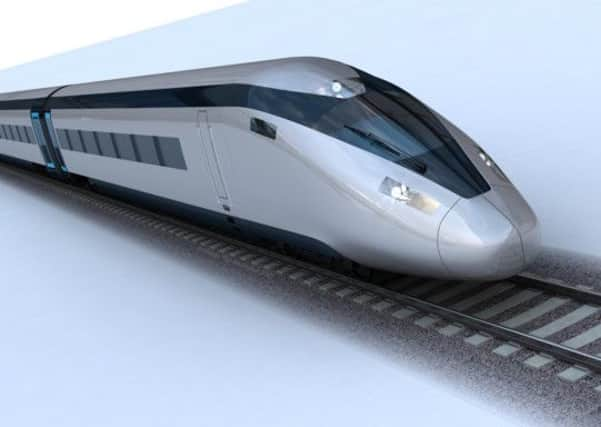HS2 is benchmark in London-centric decisions


For proof of this one only needs to look at some of the rhetoric coming from our senior politicians. In his recent speech in London, First Minister Alex Salmond referred to the city as “the dark star” of the economy compared to an independent Scotland’s “northern light” of liberation. Lib Dem business secretary Vince Cable, who represents the London seat of Twickenham, went further and described it as a “giant suction machine draining the life out of the rest of the UK”.
But despite this London-phobic language, the long-term UK government strategy of “Better Together” is aimed at apparently turning much of the rest of the UK into a commuter belt for London in the form of the highly controversial High Speed Rail 2.
Advertisement
Hide AdAdvertisement
Hide AdNo date was ever fixed on it getting to Glasgow or Edinburgh, but it does matter for Scotland because it will make the UK a much smaller place in terms of travel time. Even the limited phase one plans to Birmingham will bring down travel times to Scotland from four hours and 48 minutes to four hours and then to three hours 38 minutes once it has been extended to Manchester and Leeds in 2032-33.
And the future of the £50 billion project is proving to be a significant point of discussion ahead of tomorrow’s Budget with the chairman of HS2, Sir David Higgins, calling for the project to be accelerated, running from London to Crewe in Cheshire by 2027 instead of merely reaching Birmingham by 2026.
The reason he has done this is because he fears that an incoming Labour government in 2015 will cancel the project, which is being hailed as vital for keeping engineering skills and talent in the country as well as boosting the economy. Those familiar with the large white elephant outside party conferences will know the alternative side of the argument, and it is the cost and questionable benefit to the country as a whole which has led Labour’s shadow chancellor Ed Balls to strongly hint he would chop it.
It is unlikely that Chancellor George Osborne will commit any earlier funds to the project in the Budget, but he will continue to give his full backing to HS2, although he might be interested in a super-terminal in Crewe within a short drive of his Tatton constituency.
In many ways HS2 has become the benchmark of where politicians see the UK in the future in terms of bringing it closer together and supporting engineering, or saving huge amounts of money on something only the rich could afford to use.